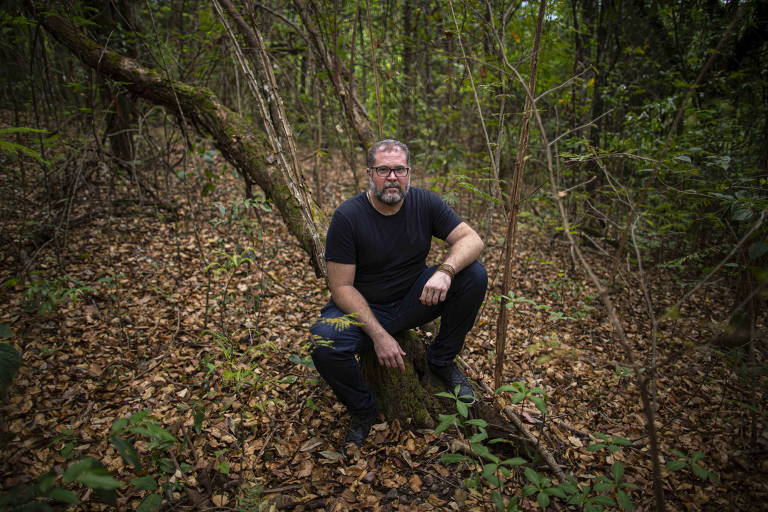"The president [Jair Bolsonaro] didn't demarcate an inch like he promised. The president of Funai, [Marcelo] Xavier, is there for that. It's the management of chaos. I don't know [sigh]. Difficult, tiring, dangerous. Let's go."
This is how the indigenous expert Bruno Pereira, 41, responded to Folha during a lengthy telephone interview weeks before his last trip to the Vale do Javari indigenous land in Amazonas.
The interview is dated April 22, the day Brazil celebrates its "discovery." After 44 days, on June 5, Bruno disappeared near the indigenous land. He was murdered alongside British journalist Dom Phillips, 57, who was writing a book about the Amazon and had the help of the expert.
Bruno was a licensed employee of the National Indian Foundation. That day, Folha contacted him to talk about the risks faced by isolated indigenous people today, his specialty.
In the approximately 50-minute interview, his tone varied between concern when talking about the safety and risk of death of the isolated and enthusiasm when referring to the possibilities of maintaining his work in defense of indigenous rights and freedoms through what he called "resistance."
When referring to FUNAI, from which he had resigned, Bruno showed dejection and indignation, especially when the topic was the current management of the federal agency under the command of Bolsonaro.
Bruno, the former general coordinator of isolated and recently contacted Indians, started to work on the front line in protecting indigenous lands through União dos Povos Indígenas do Vale do Javari. The region is the target of invasions due to illegal fishing and hunting, mining, and the influence of drug trafficking.
He analyzed the current condition of FUNAI, spoke of persecution against him and other civil servants, addressed the external influence on the autarchy, and presented his overview of the country's indigenist policy and the condition of indigenous peoples.
That day, Bruno asked the reporter not to publish his statements about FUNAI on the advice of his lawyers because he had been embroiled in an internal conflict after leaving.
Now, faced with his tragic death and the journalistic interest in what he thought about the subject, Folha is publishing his interview. That day, Bruno was in Santarém (PA).
Translated by Kiratiana Freelon
